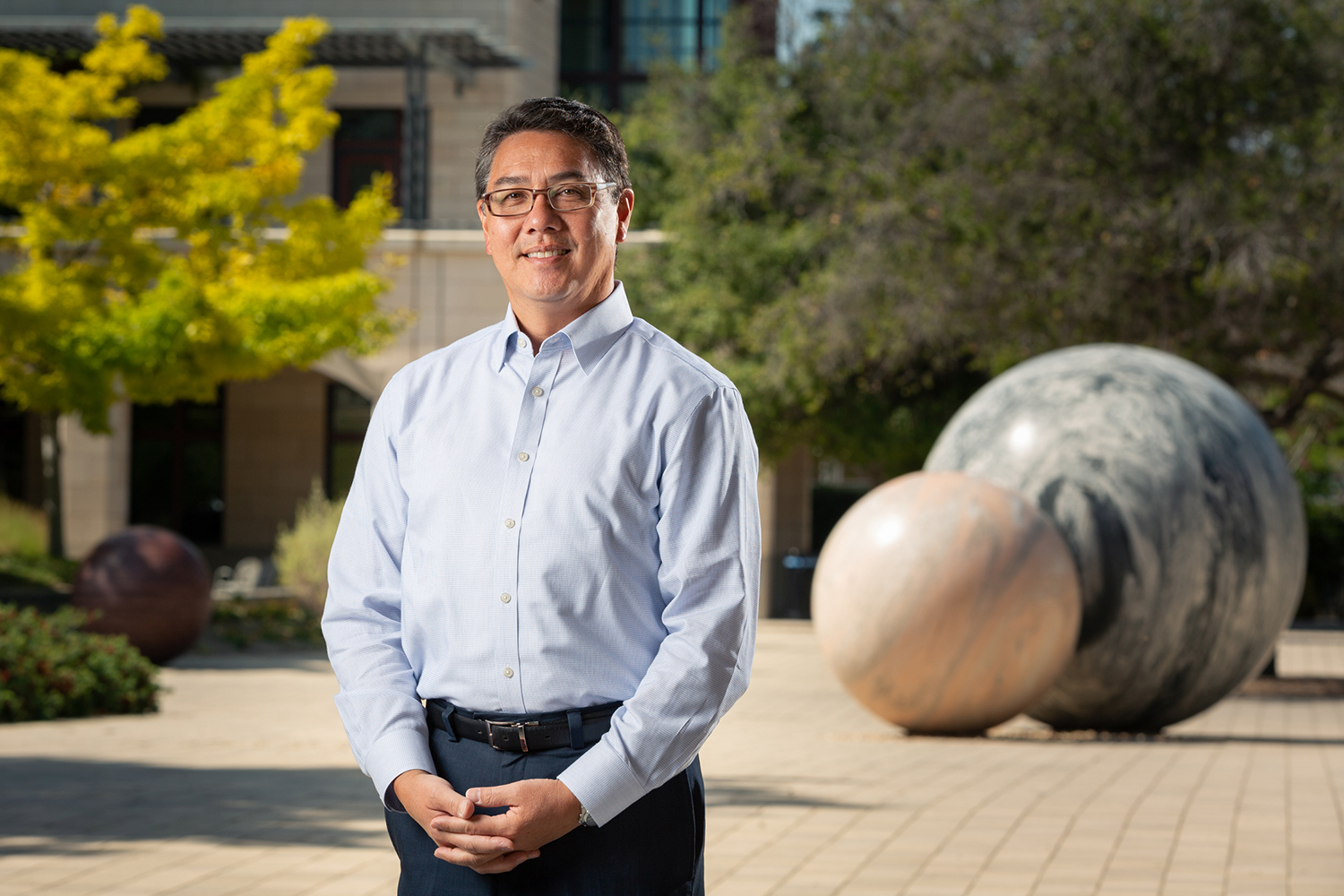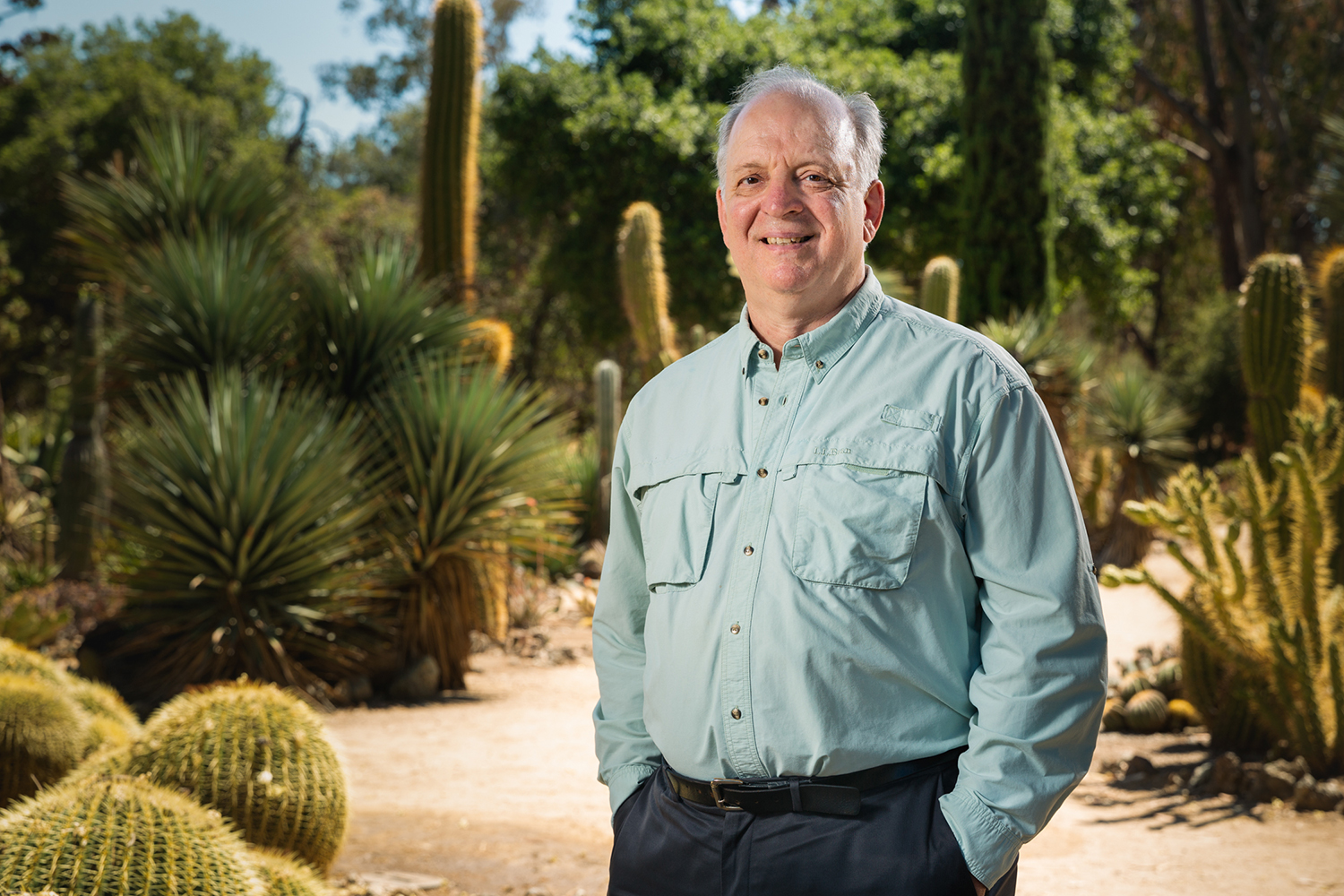Stanford awards 2020 Marsh O’Neill Awards to Kevin Manalili and Richard Tiberio
Kevin Manalili, director of facilities planning and management for the School of Engineering, and Richard Tiberio, senior research scientist at Stanford Nano Shared Facilities, have each won a 2020 Marsh O’Neill Award for Exceptional and Enduring Support of Stanford University’s Research Enterprise.
Stanford will award the 2020 Marsh O’Neill Award for Exceptional and Enduring Support of Stanford University’s Research Enterprise to two members of the university staff: Kevin Manalili, director of facilities management and planning for the School of Engineering, and Richard Tiberio, senior research scientist at Stanford Nano Shared Facilities.
The award presents one of the few opportunities for faculty to publicly acknowledge the contributions of outstanding staff members who support their research activities. The award, which is accompanied by a $5,000 cash prize, was inspired by the extraordinary career of Marshall D. O’Neill, who was the associate director of the W.W. Hansen Laboratories from 1952 to 1990. O’Neill was the first recipient of the award.
The selection and announcement of the 2020 winners were delayed due to the pandemic.
Planning is underway for a virtual celebration honoring Manalili and Tiberio on July 19.
Kevin Manalili – ‘nothing short of heroic’
As director of facilities management and planning for the School of Engineering, Kevin Manalili oversees a 17-person team of building managers, project managers, safety specialists and operations support representatives.

Kevin Manalili is director of facilities planning and management for the School of Engineering. (Image credit: Andrew Brodhead)
“We provide places and resources that enable engineering, science and technology research and education to flourish,” said Manalili, who joined Stanford in 2015. “It is our responsibility to ensure that all of our spaces are clean, safe and able to support cutting-edge research and education.”
Their work took on new urgency in March 2020 when Santa Clara County issued a shelter-in-place order to help prevent the transmission and spread of COVID-19, an order that closed down most of the university.
In a letter nominating Manalili for the award, faculty members commended his “proactive leadership, creativity and calm demeanor” during the pandemic.
“Kevin has been nothing short of heroic in his highly effective support of the school’s ongoing research efforts throughout the many policy shifts and logistical challenges over the past 15+ months,” they wrote.
The nomination letter was signed by the chairs of eight academic departments in the School of Engineering; Ken Goodson, the school’s senior associate dean for faculty and academic affairs; and Dean Jennifer Widom, a professor of computer science and of electrical engineering.
“Research is the lifeblood of our school’s faculty, students and postdoctoral scholars, and about half of the school’s 260+ faculty are engaged in experimental research that cannot make progress without access to campus facilities,” they wrote.
“Much of this research must be sustained 24 hours a day, seven days a week, 365 days a year, so the initial shelter-in-place order required an immediate and substantial response. Kevin and his team jumped into action and worked with our research community to identify critical processes, equipment and materials that needed specialized attention under COVID limitations, as well as the key individuals required to support them.”
Manalili’s decisive actions allowed the Shriram Building – home of the departments of Bioengineering and Chemical Engineering – to operate at the maximum allowable capacity during the pandemic, enabling a number of labs to quickly pivot to COVID research.
“In these labs and elsewhere, a significant proportion of the researchers are graduate students, and continued access to hands-on research experience is integral to their education, progress toward graduation and long-term success,” they wrote. “Kevin’s work to expeditiously and safely restore buildings to their maximum capacity at each stage of reopening has had a strong positive impact on these students’ academic careers.”
Manalili, who also played a key role on Stanford’s Research Operations Continuity Working Group, said he was honored to be recognized with a Marsh O’Neill Award.
“I’m glad I was able to play a role in safely restarting research,” he said. “I’m very proud there were no cases of on-campus transmission in our labs and that the work we did kept everyone working on site safe. My team members were rock stars this past year, coming into work while most staff worked from home and providing COVID compliance support in addition to their regular tasks.”
Richard Tiberio – ‘stalwart core of nanofabrication’
As the senior research scientist for Stanford Nano Shared Facilities, Tiberio helps graduate students achieve their research goals and launch their science careers – work he described as rewarding and joyful, and full of challenging twists and turns.

Richard Tiberio is a senior research scientist in the Stanford Nano Shared Facilities. (Image credit: Andrew Brodhead)
“Every day is a new, fun surprise,” said Tiberio, whose work also enables the research of postdoctoral scholars and faculty members in the schools of Humanities and Sciences, Engineering and Medicine.
Tiberio, who arrived at Stanford in 2000 and has more than four decades’ experience in electron-beam lithography, said it was an honor to be selected for a Marsh O’Neill Award.
“It provides inspiration to be even more creative for each new incoming class of students and researchers,” he said.
Faculty members who nominated Tiberio for the award said he is known for his accessibility, exceptionally deep understanding of electron-beam lithography, a passion for sharing that knowledge and a willingness to solve any problems that arise – at any hour.
David Goldhaber-Gordon, a professor of physics in the School of Humanities and Sciences, described Tiberio as “the stalwart core of the Stanford nanofabrication community.”
“When someone comes to Rich with an idea, he draws on his extensive experience of process technology – beyond just electron-beam lithography – and his network of top lithographers worldwide, and often offers a transformative suggestion for how to accomplish the user’s goal,” he said. “My group’s research depends heavily on nanofabrication, and Rich has been a fantastic resource, going well beyond the call of duty.”
Jennifer Dionne, associate professor of materials science and engineering in the School of Engineering and senior associate vice provost of research platforms/shared facilities, said Tiberio played a key role in campus COVID research during the pandemic.
“Shortly after the shutdown, my lab was approved for campus research to make chips for sensing COVID gene fragments,” she said. “This research required nanopatterning in the cleanroom, and Rich was instrumental in getting students safely and swiftly into the cleanroom, training them on new COVID health and safety guidelines, and assisting with their research to address the COVID pandemic.”
Jelena Vuckovic, a professor of electrical engineering in the School of Engineering, said if a member of her group faces a problem with e-beam lithography, Tiberio always comes up with solutions and ideas to try new things – even if that creates more work for him.
“For example, he helped one of my students develop an e-beam lithography process using a new type of resist that had not been used in our facility before,” she said. “If Rich is not able to provide advice to my students, he shares his large network of nanofabrication experts with them and finds the right experts to help them with their processes.”
Tony F. Heinz, a professor of applied physics in the School of Humanities and Sciences and of photon science at SLAC National Accelerator Laboratory, said Tiberio “goes the extra mile” to understand the users’ individual projects, suggesting prototypical lithography solutions and supervising starting attempts – thereby helping users to launch their new research directions.
“My students and postdocs have greatly benefited from Rich’s assistance and have expressed much enthusiasm for his nomination for this award,” Heinz said.